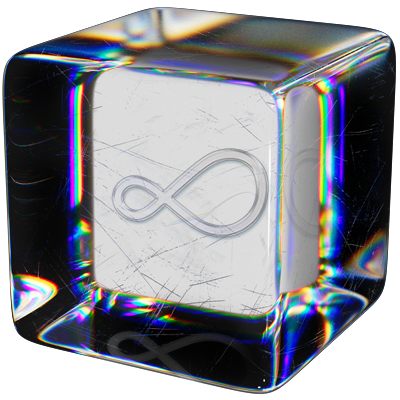
If you want to learn more about Obol, please read below. Do you want to cooperate with the Everstake team? Please email [email protected] to discuss the opportunity.
About Obol
The Obol Network is an ecosystem for trust minimized staking that enables people to create, test, run and coordinate distributed validators.
As Ethereum matures over the coming years, the community will face the next great scaling challenge, which is stake centralization. To effectively mitigate these risks, community building and credible neutrality must be used as primary design principles.
The team is building the Obol as a protocol to foster trustless staking through multi-operator validation enabling low-trust access to Ethereum staking yield, which can be used as a core building block in a variety of Web3 products. It is designed to provide the Ethereum with more resiliency and promote decentralization as it scales.
Obol is focused on scaling consensus by providing permissionless access to Distributed Validators (DVs). In preparation for the first wave of adoption, the network currently utilizes a middleware implementation of DVT to enable the operation of distributed validator clusters that can preserve validators current client and remote signing infrastructure.
Layers like Obol are critical to the long term viability and resiliency of public networks, especially networks like Ethereum. DVT has a potential to evolve into a widely used primitive, which may ensure the security, resiliency, and decentralization of the public blockchain networks that adopt it.
Everstake participation
Everstake is proud to support Obol since the early testnets, acting as a node operator, creating validators in testnets and joining early mainnet clusters. We were part of the Obol Alpha Mainnet as one of 45 validators and ran a validator for six months. Everstake also participated in the first distributed-validator cluster with native restaking on the Goerli EigenLayer testnet.
Obol launched a Mainnet Open Beta (DV Launchpad) and continues development toward Obol V2, a trust-minimized Distributed Validator Protocol.
Everstake now takes part in several Lido Simple DVT Module clusters and operates clusters together with other partners as we move from alpha and beta support toward broader production adoption.
Interested in staking more than $500k of ETH via Obol?
Everstake is happy to discuss special staking conditions and services we provide for institutions and large investors. Please contact [email protected] or book a slot for any additional details.
faq
Who is DV Labs?
+DV Labs is a research and software development team focused on proof-of-stake infrastructure for public blockchain networks. Specific topics of focus are Internet Bonds, Distributed Validator Technology and Multi-Operator Validation. The team currently includes 35 members that are spread across the world.
The core team is building the Distributed Validator Protocol, a protocol to foster trust minimized staking through multi-operator validation. This will enable low-trust access to Ethereum staking yield, which can be used as a core building block in a variety of Web3 products.
Is Obol live?
+Yes, Obol is now at Mainnet stage. Anyone can access the DV (Distributed Validator) Launchpad, set up a DV cluster and operate a distributed validator on the Ethereum mainnet.
What is DVT?
+DVT, or Distributed Validator Technology , is a technology primitive that allows an Ethereum PoS validator to be run on more than one node or machine. This allows a cluster of nodes run by an individual, group, or community of operators to act together as a single validator on Ethereum.
DVT removes some of the single points of failure in validation. Should <33% of the participating nodes in a DV cluster go offline, the remaining active nodes can still come to consensus on what to sign and can produce valid signatures for their staking duties. This is known as Active/Active redundancy, a common pattern for minimizing downtime in mission critical systems.
Running a validator as a cluster of nodes improves its resiliency while greatly reducing the slashing risk of honest validators, regardless of its size. This makes staking more robust and accessible for all validators.
What is a distributed validator?
+A Distributed Validator (DV) is an Ethereum proof-of-stake validator that runs on more than one node/machine. This functionality is possible with the use of DVT.
A Distributed Validator is one or more 32 ETH validators being operated across a number of nodes that are all online simultaneously and that all control a subset of each validator’s private keys. Each of these nodes need to run an Execution client, a Consensus client, a Distributed Validator client, and a Validator client and Key Manager.
The distributed validator clients in these nodes come to consensus on what should be signed before constructing a signature for the validator that will be accepted by the wider Ethereum network. Dividing a validator across a group of nodes allows for fault tolerant validators that can remain online and validating despite a subset of its nodes experiencing an outage.
What are Distributed Validator Clusters?
+Distributed Validator Clusters are multi-operator, fault-tolerant clusters of servers running Ethereum execution layer (EL) and consensus layer (CL) clients, distributed validator clients, and validator clients. This combination enables a subset of servers to fail and recover, without a Distributed Validator running on this cluster going offline.
What is the difference between a node, a validator and a cluster?
+A node is a single instance of Ethereum EL and CL clients that can communicate with other nodes to maintain the Ethereum blockchain.
A validator is a node that participates in the consensus process by verifying transactions and creating new blocks. Multiple validators can run from the same node.
A cluster is a group of nodes that act together as one or several validators, which allows for a more efficient use of resources, reduces operational costs, and provides better reliability and fault tolerance.
What is Charon?
+The Charon middleware is Obol's implementation of DVT.
Charon is a GoLang-based, HTTP middleware built by Obol to enable any existing Ethereum validator clients to operate together as part of a distributed validator.
Charon acts as middleware between a normal validating client and its connected beacon node, intercepting and proxying API traffic. Multiple Charon clients are configured to communicate together to reach a consensus on validator duties and behave as a single unified proof-of-stake validator. The nodes form a cluster that is byzantine-fault tolerant and continues to progress assuming a supermajority of working/honest nodes is met.
How to run a Distributed Validator?
+There are several ways to set up a distributed validator and each comes with its own quickstart: run a DV cluster as a group, run a DV cluster alone, deposit and activate validators, and migrate an existing validator.
Both are powered by Everstake. Contact [email protected] to discover what you need to get started.
Does Obol have a token?
+Yes, the OBOL Token is central to governance, operations, and incentives within the Obol Collective.
The utility of the OBOL token includes:
- Governance: Token holders delegate their voting power to Delegates, who participate in voting on Token House governance proposals.
- Obol Retroactive Funding (RAF): Token holders delegate their voting power to Delegates, who vote to allocate retroactive funding to eligible projects.
- DeFi: The OBOL Token is integrated into several DeFi liquidity pools and lending protocols.
- Added Utility: Via governance proposals, the Obol community can add more functionality to the Obol token.
